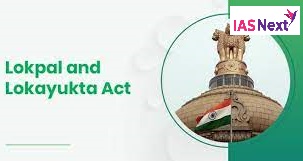CURRENT AFFAIRS
Get the most updated and recent current affair content on Padhaikaro.com
Kerala’s proposal to limit Lokayukta’s powers
- IAS NEXT, Lucknow
- 04, Feb 2022

Reference News:-
The Kerala government has proposed to amend the Kerala Lok Ayukta Act with an ordinance.
- This move has drawn criticism from the opposition.
Changes proposed:
The government can “either accept or reject the verdict of the Lokayukta, after giving an opportunity of being heard”.
- Currently, under Section 14 of the Act, a public servant is required to vacate office if directed by the Lokayukta.
The amendments are being opposed for two reasons:
- The changes are proposed through an ordinance and hence there was no proper discussions on the matter.
- It violates the fundamental spirit of the central Lokpal and Lokayuktas Act, 2013.
Who is a Lokayukta?
The central Lokpal and Lokayuktas Act, 2013 was notified on January 1, 2014.
Lokayuktas are the state equivalents of the central Lokpal.
- Originally, the central legislation was envisaged to make a Lokayukta in each state mandatory.
- However, after opposition, the law then created a mere framework, leaving it to the states to decide the specifics.
Given that states have autonomy to frame their own laws, the Lokayukta’s powers vary from state to state on various aspects, such as tenure, and need of sanction to prosecute officials.
Who is a Lokpal?
The Act provides for establishing a Lokpal headed by a Chairperson (who is or has been a Chief Justice of India, or is or has been a judge of the Supreme Court, or an eminent person who fulfils eligibility criteria as specified).
Members: Of its other members, not exceeding eight, 50% are to be judicial members, provided that not less than 50% belong to the SCs, STs, OBCs, minorities, or are women.
Roles and functions: The Lokpal and Lokayukta are to deal with complaints against public servants, a definition that includes the Lokpal chairperson and members.
- The Lokpal was appointed in March 2019 and it started functioning since March 2020 when its rules were framed.
- The Lokpal is at present headed by former Supreme Court Justice Pinaki Chandra Ghose.
Why do we need such institutions?
- Maladministration is like a termite which slowly erodes the foundation of a nation and hinders administration from completing its task.
- Corruption is the root cause of this problem. Most of the anti-corruption agencies are hardly independent. Even Supreme Court has been termed CBI as a “caged parrot” and “its master’s voice”.
- Many of these agencies are advisory bodies without any effective powers and their advice is rarely followed.
- There is also the problem of internal transparency and accountability. Moreover, there is not any separate and effective mechanism to put checks on these agencies.
In this context, an independent institution of Lokpal has been a landmark move in the history of Indian polity which offered a solution to the never-ending menace of corruption.